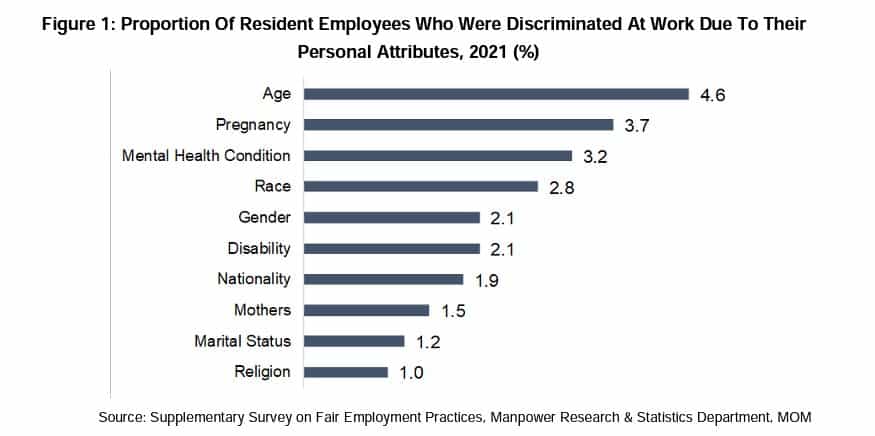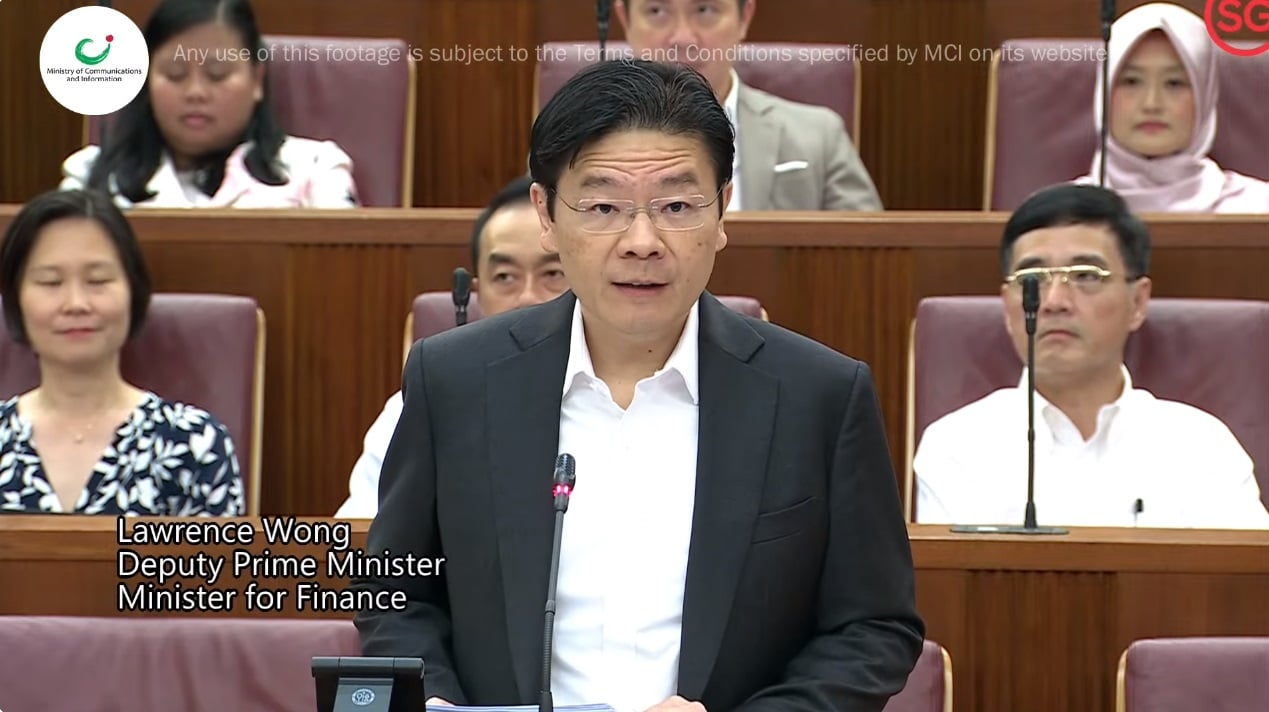If you watch a lot of 宫斗剧 aka Palace Drama like The Legend of Zhen Huan, The Story of Yanxi Palace, or Ruyi’s Royal Love in the Palace hor, you will feel like some of the characters in the show can be pretty similar to the people you see in a company.
https://www.facebook.com/sureboh.sg/posts/pfbid02Pvnr9hL1xQAzfFxcqMZg6Hn3xQdxCNGBdNvvL7Uhu9yrXQ9y8uk8VZFVfxyFqhdjl?__tn__=%2CO*F
Some of the underhand methods they use can be considered as what we call workplace discrimination in today’s terms – but of course not so extreme like how Rong Mo Mo (容嬷嬷) used the needle to poke Zi Wei (紫薇) in 还珠格格 (My Fair Princess) lah.

But other things like bullying, harassment, discrimination, etc. are still considered quite prevalent.
Age-based discrimination most common
According to a survey by the Ministry of Manpower (MOM) on fair employment practices, age-based discrimination was found to be the most common form of discrimination. Workers who were discriminated due to their age were mainly in their 40s and over.

The other most common types of discrimination are pregnancy, mental health condition, race and followed by gender discrimination.
What can workers do when they feel like they kena discriminated at workplace?
A study conducted by the Institute of Policy Studies (IPS) found that 88% of Singapore residents believed that the law would be effective in reducing workplace discrimination. But hor, interestingly, the same study also revealed that when it comes to reporting discrimination (such as racial discrimination), nearly one in two (49%) said that they would choose to stay silent.
The results suggest that while most of us might have faith in law enforcement, fewer of us have the courage to call out the bad actors.
Often, this stems from the fear of repercussions. Understandable lah, because who would want to bao-toh your co-workers then end up getting into trouble especially if the other party is your almighty management equipped with more resources and legal know-how, tio bo?
But don’t be like that! Keeping quiet is not going to help with anything!
Here’s what you can actually do to fight back:
- Don’t be scared! Speak up and make a stand if you spot that something is not right.
- Report it to Tripartite Alliance for Fair Employment Practices (TAFEP). Tia gong they handle all cases of workplace discrimination, even if they arise from attributes that are not cited as examples in the Guidelines.
- If you are a union member working in an unionised company, then gongxi gongxi, because you can go and look for your union or union leaders who will be your voice to speak up for you.
- For other NTUC members, you may reach out to TADM@NTUC. Not an NTUC member yet? Mai tu liao, join the NTUC as members to be protected.
Even if all else fails, you can still voice out your work concerns and aspirations HERE.
In case you don’t know, this #EveryWorkerMatters Conversations exercise is a one-year-long public engagement exercise that NTUC is conducting to understand workers’ concerns, priorities, and aspirations across a broad spectrum of life stages and socio-economic statuses.
https://www.facebook.com/PatrickTayTG/posts/pfbid02GDo2LBCU8whgqyaEguGmMK5oNGU8bhN3sSG545qgwtBj1EwY2RAdMWcHr6U7iiwol
Through all these engagements with workers, NTUC wants to ensure that workers can be protected and have fair opportunities at work to fulfil their potential.
If you’d like to contribute your story to us, drop us an email at editors@sureboh.sg and we’ll review it. We read each submission that comes to us within two weeks of receiving it.





